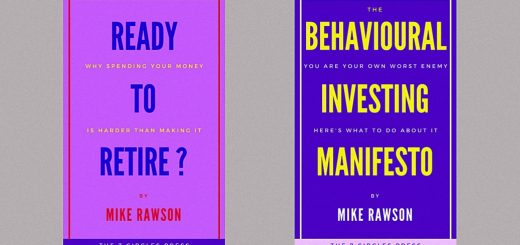Moving Money Offshore

Today’s post is about the pros and cons of moving money offshore.
Why?
Most people think that offshore accounts are designed to hide money or to avoid tax.
- I won’t pretend that those aren’t the reasons behind some people moving assets offshore, but they aren’t ours.
We want to avoid capital controls (see next section).
In fact, offshore accounts are not exempt from UK tax.
- They could even be liable for dual taxation, in both the UK and the foreign state.
You need to declare offshore income, and there are serious penalties for not doing so.
- HMRC seems to have become much more interested in this kind of avoidance in recent years.
The (fairly) recent Requirement to Correct has significantly increased the penalties.
- And an international agreement to share information – the Common Reporting Standard, or CRS – has now been signed by more than 100 countries.
You really need to become tax resident abroad to escape UK tax.
- And even then you need to look at the dual-taxation treaty in some detail.
- There are more than 100 of these, and some of them are quite favourable.
Apart from avoiding capital controls, here are a couple of other potential plus points for offshore accounts:
- You might get higher interest rates on savings.
- Though these could come with higher operating charges.
- And you won’t have the UK’s FSCS compensation scheme to protect you.
- Though there could be a local equivalent – Guernsey and the Isle of Man have £50K protection.
- You might keep money in foreign currencies as a form of hedging.
- Of course, Sterling might appreciate rather than depreciate against these currencies in the future.
Why now?
I have never lived outside the UK, and I have no assets outside of the UK.
- Until 2019, I had never considered moving assets offshore.
But then Jeremy Corbyn persuaded 12.9M people to vote for him, and his essentially communist Labour “government-in-waiting”.
With the Brexit negotiations going nowhere, there is a serious risk that disruption after we leave the EU in March 2019 would lead to another early General Election.
- With May a dead woman walking, and the Tory party deeply divided on who should succeed her as leader, there is also a serious risk that Corbyn could win.
Labour have discussed a number of bonkers proposals over the last couple of years, and at the last two party conferences, capital controls have been on the menu.
- They were first mentioned by John McDonnell in 2017, when he talked about the risk of capital flight – and Labour measures to counteract it – should Corbyn be elected.
Capital controls
Capital controls are legal measures taken by the government to limit the flow of capital into or out of the country.
- They can include foreign exchange controls (limits on the buying and selling of foreign currencies) and restrictions on the purchase of certain financial assets.
According to the IMF, they are associated with “autocratic regimes, failed macroeconomic policies and financial crises”.
The arguments against them are similar to those in favour of free trade:
- Money flows to where it is most productive, which boosts developing nations (though it can in certain cases lead to overheating – eg. Ireland, Iceland, Latin America, East Asia).
- Borrowers get cheaper rates, and lenders higher ones.
The UK introduced capital controls during the First World War (in 1914).
- Foreign-currency securities were commandeered and it became difficult to export gold.
The controls were extended after the Second World War, and lasted right up to 1979.
- UK citizens could take only £50 out of the country on holiday, and the amounts were recorded in your passport.
There was also a fixed pool of overseas investment by UK citizens., managed by the Bank of England.
- A new purchase by one resident had to be offset by sale from another.
Practicalities
A major obstacle to my moving money offshore is where I keep it today.
- 33% of my net worth (( at the start of 2018 )) was in property
- 33% is in SIPPs
- 18% is in ISAs
- 10% is in DB pensions
That’s 93% (after rounding) that is tax-sheltered or illiquid.
And on top of that my partner and I could each save £50K in premium bonds and £66K (at current interest rates) in cash savings accounts without paying any UK tax.
- And that’s without looking at tax shelters like VCTs and EIS.
On the other hand, around 8% to 10% of additional cash could be freed up by taking the 25% tax-free lump sums from the SIPPs, and potentially converting DB pensions into DC ones.
But the bottom line is that you would need to have a lot of money overall (or organise your affairs in a tax-inefficient way) in order to have a decent sum that can be moved overseas.
- For now, I’ll ignore these practical considerations and look at what I could do, if I had the cash to hand.
How?
There are several ways to put money abroad:
- Offshore arms of UK financial institutions.
- Lloyds and Skipton BS came up in my research today, but I’m sure there are many others.
- These will usually be based in the Isle of Man or the Channel Islands.
- Foreign financial institutions.
- Obvious locations for UK citizens include the aforementioned Isle of Man and Channel Islands, plus Switzerland, Luxembourg and Monaco.
- Some people might worry that a Corbyn government could go after the UK Crown dependencies.
- Racier / less stable spots in Europe include Cyprus, Gibraltar, Andorra and Liechtenstein.
- Further afield, many tax havens are in the Caribbean or Central America.
- And in some circumstances, places like Hong Kong and Singapore can be useful.
- A foreign company, trust or private foundation.
- Some people pay for local “nominees” to appear on the company paperwork, so that ownership can’t be traced back to the beneficial owner.
- Trusts can be used to defer tax until the income is taken (at which point the beneficial owner might have relocated to a low-tax jurisdiction).
- You could store gold abroad – Singapore is a popular location.
- This gold could be bought locally (ie. in Singapore) or – if you already own physical gold – shipped from the UK.
Conclusions
Moving money offshore is not so difficult, but nor is it the silver bullet that many think
- And at the moment, I personally have little scope to move money abroad easily.
So even if the prospect of a Corbyn government moves closer, I am more likely to look at moving myself abroad (probably to Portugal) than moving my money.
Until next time.

















Very interesting piece. I have been researching off shore bonds ( which aren’t bonds in investment class sense) that are compliant in Portugal. The issue I have so far is that you don’t seem to be able to access without expensive advisors. If you happen to know how to that would be great thanks
Sorry, I don’t know anything about offshore “bonds”.